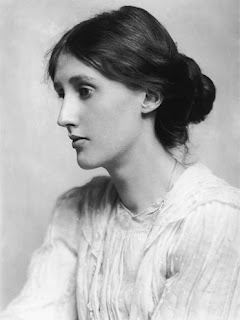Fiction and the Ordinary Life

"Examine for a moment an ordinary mind on an ordinary day. The mind receives a myriad of impressions - trivial, fantastic, evanescent, or engraved with the sharpness of steel... Life is not a series of gig lamps symmetrically arranged; but a luminous halo, a semi-transparent envelope surrounding us from the beginning of consciousness to the end. Is it not the tasks of the novelist to convey this varying, this unknown and uncircumscribed spirit, whatever aberrations or complexity it may display, with as little mixture of the alien and external as possible."
The ordinary life is a repetitious life. The ordinary man is a repetitious man. There are no plots dictating the flow of his daily existence even though, as he walks into the world, he often dreams of romantic love affairs, of adventurous journeys in distant countries, of being somebody important, of surrealistic sexual desires - he is a constant dreamer recreating over and over again the story of his life. But to dream in real life is no substitute to the dreams and magical fantasies that we find in fiction. Even the novels that have managed to come close as possible to real life like Tristram Shandy, To The Lighthouse, Ulysses, I Am A Cat, Party Going, Epitaph Of A Small Winner, must never be seen as representing or imitating reality. Fiction creates its own world. It is its own reality. Whether we chose to live in it or not, is of course a matter of personal taste and the kind of dream that we are looking for. The most difficult type of dream that a novelist can create is the one where reality and dream seem to bind together as if there are of the same kind, and the reader is never aware he is dreaming, living, breathing in this recreated reality. In his dream, the ordinary life has become more beautifully serious than before.
(Virginia Woolf)
The ordinary life is a repetitious life. The ordinary man is a repetitious man. There are no plots dictating the flow of his daily existence even though, as he walks into the world, he often dreams of romantic love affairs, of adventurous journeys in distant countries, of being somebody important, of surrealistic sexual desires - he is a constant dreamer recreating over and over again the story of his life. But to dream in real life is no substitute to the dreams and magical fantasies that we find in fiction. Even the novels that have managed to come close as possible to real life like Tristram Shandy, To The Lighthouse, Ulysses, I Am A Cat, Party Going, Epitaph Of A Small Winner, must never be seen as representing or imitating reality. Fiction creates its own world. It is its own reality. Whether we chose to live in it or not, is of course a matter of personal taste and the kind of dream that we are looking for. The most difficult type of dream that a novelist can create is the one where reality and dream seem to bind together as if there are of the same kind, and the reader is never aware he is dreaming, living, breathing in this recreated reality. In his dream, the ordinary life has become more beautifully serious than before.


Comments